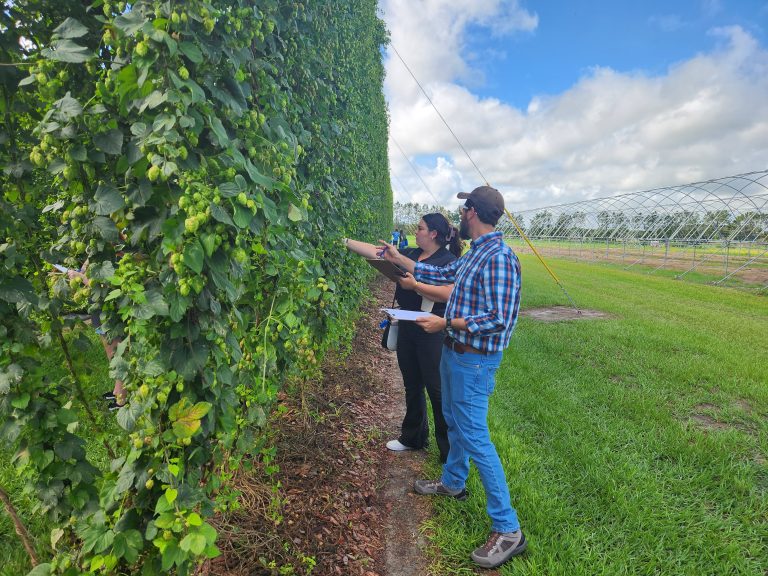By Clint Thompson
Choosing the right hops variety means growers won’t have to be as concerned with root-knot nematode management.

Johan Desaeger, assistant professor of entomology and nematology at the University of Florida Institute of Food and Agricultural Sciences Gulf Coast Research and Education Center, discussed that benefit of hops production which continues to gain traction in Florida.
“The hop yard that we have here, there is no nematode management anymore. The key with the hops is having the right variety. When they started growing hops here, they had a bunch, up to 10 different varieties. A lot of them didn’t grow well because they were so badly damaged by root knot nematodes,” Desaeger said. “As they replanted, they focused on this variety Cascade which seemed to grow better. It seems to be more tolerant to root-knot.”
Growers who are interested in producing a hops yard should get their soils checked for nematode activity. If nematodes are detected, a likely outcome in Florida, a fumigant treatment should be implemented before planting. A K-PAM treatment will help suppress nematode activity to establish plantings.
“The plants really look good this year. There’s not many people that work on hops anywhere in the world. When we saw the root-knot here on hops the first time, I think that was the first time anybody saw it on hops or figured out it could be a problem. When they established the new hops, they fumigated the field with K-PAM I believe, before they planted. We’ve been sampling that field a little bit over the years, and root-knot is really not that bad anymore,” Desaeger said.










